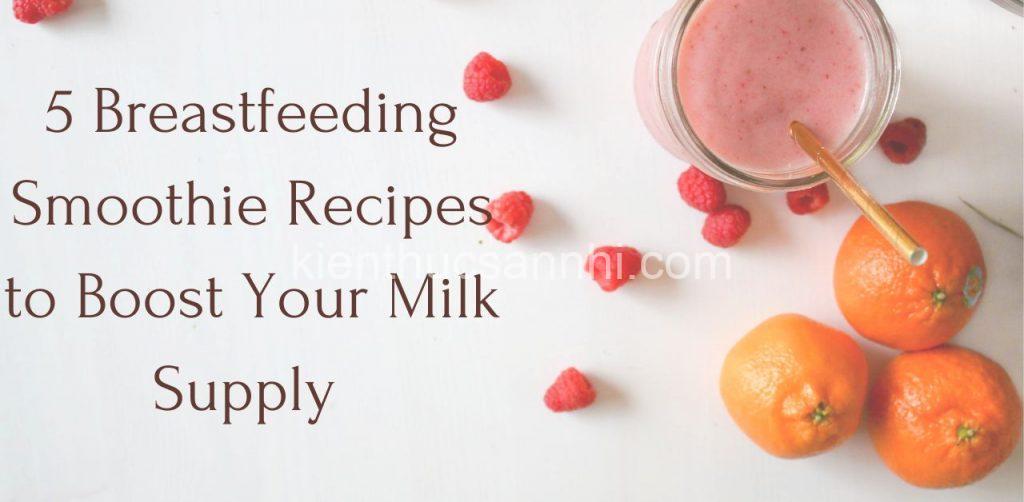
Postpartum Nutrition: Probiotics for Gut Health & Recovery. In today’s article, kienthucsannhi.com will explore with you in the most detailed and complete way. See now!
The Impact of Probiotics on Postpartum Recovery: Harnessing the Power of Your Gut
Postpartum recovery is a crucial time for mothers to focus on their well-being, and that includes their gut health. Your gut is not just about digestion; it’s a complex ecosystem of bacteria, yeast, and other microorganisms that influence your overall health. This intricate community, known as your gut microbiome, plays a vital role in your immune system, mood, and even your ability to absorb nutrients.
During pregnancy, your gut microbiome undergoes significant changes. This is largely due to hormonal shifts, dietary modifications, and the physical demands of carrying a baby. These changes can sometimes lead to an imbalance in your gut microbiome, known as gut dysbiosis. Gut dysbiosis can contribute to a range of postpartum challenges, including digestive discomfort, mood swings, fatigue, and a weakened immune system.
Probiotics are live microorganisms that, when consumed in adequate amounts, provide health benefits. They essentially act as friendly bacteria that help restore balance to your gut microbiome. By introducing these beneficial bacteria, probiotics can potentially improve your digestive health, boost your immune system, and even enhance your mental well-being.
Imagine your gut as a garden. Just as you would add beneficial plants and nutrients to your garden, probiotics help introduce good bacteria to your gut. This helps create a thriving environment, promoting optimal health.

Understanding the Postpartum Gut Microbiome: A Shifting Landscape
The postpartum period is a time of significant physiological changes, and these changes often impact the delicate balance of your gut microbiome. During pregnancy, your body goes through a remarkable transformation to support the growing baby. This includes hormonal fluctuations, dietary adjustments, and even changes in your immune system.
These changes, while essential for a healthy pregnancy, can sometimes lead to a shift in your gut microbiome. This shift can make your gut more susceptible to imbalances, which is why gut health is often overlooked but crucial for postpartum recovery.
Here’s a breakdown of how pregnancy and postpartum affect your gut:
- Hormonal Changes: Hormonal shifts during pregnancy, particularly those related to estrogen and progesterone, can influence the composition and function of your gut microbiome. These changes can sometimes disrupt the balance of good and bad bacteria.
- Dietary Adjustments: Many women experience changes in their dietary habits during pregnancy, often due to food cravings, aversions, or dietary restrictions. This can alter the types of bacteria that thrive in your gut.
- Immune System Modifications: Your immune system undergoes significant changes during pregnancy to accommodate the developing fetus. This can lead to a temporary suppression of your immune system, making you more susceptible to infections or imbalances in your gut microbiome.
- Postpartum Stress and Sleep Deprivation: The postpartum period can be challenging, with new responsibilities, sleep deprivation, and potential stress. These factors can contribute to changes in your gut microbiome, as stress can negatively impact the delicate balance of your gut bacteria.
By understanding these factors, you can better appreciate why addressing gut health is essential during postpartum recovery.
Probiotic Benefits for Postpartum Health: A Multifaceted Approach
Probiotics can play a significant role in supporting your overall health and well-being during the postpartum period. They can help address various challenges associated with this time, promoting a smoother and more comfortable transition.
Here are some key benefits of probiotics for postpartum recovery:
Digestive Support: Probiotics can help regulate your digestive system and alleviate common postpartum digestive issues such as:
- Constipation: Probiotics can help promote regular bowel movements and reduce constipation, a common problem for new mothers due to hormonal changes and dietary shifts.
- Bloating: Probiotics can help break down food more effectively, reducing bloating and gas.
- Diarrhea: Some strains of probiotics can help regulate bowel movements and prevent diarrhea, which can sometimes occur after childbirth.
Immune Boost: Probiotics can strengthen your immune system, which is especially important during postpartum when your body is recovering from childbirth and more susceptible to infections:
- Protection Against Infections: Probiotics can help increase the diversity of your gut microbiome, strengthening your immune system and reducing your risk of infections.
- Inflammation Reduction: Probiotics can help reduce inflammation in the gut, which can contribute to overall immune health.
Mood Enhancement: Probiotics are increasingly being recognized for their positive impact on mental health. Here’s how they can help:
- Reducing Anxiety and Depression: Probiotics can help regulate the production of neurotransmitters like serotonin and GABA, which are essential for mood regulation. A healthy gut microbiome may help improve mood stability and reduce the risk of postpartum anxiety and depression.
- Improving Sleep Quality: Probiotics can help regulate your sleep-wake cycle, leading to better sleep quality. This is particularly important during postpartum when sleep is often disrupted.
Inflammation Reduction: Probiotics can help reduce inflammation throughout your body, including the gut, which can promote healing and reduce pain and discomfort after childbirth.
Breastfeeding Support: Probiotics can benefit both mothers and infants during breastfeeding:
- Increased Milk Production: Some evidence suggests that certain probiotic strains may help increase milk production, providing a crucial source of nourishment for your baby.
- Improved Nutrient Absorption: Probiotics can aid in the breakdown and absorption of nutrients in the gut, which can be essential for breastfeeding mothers to maintain their energy levels.
- Enhanced Infant Gut Health: Probiotics can promote the development of a healthy gut microbiome in infants, supporting their digestion, immunity, and overall growth.
Choosing the Right Probiotic: Considerations for Postpartum Recovery
Choosing the right probiotic is essential to ensure you get the specific benefits you need for your postpartum recovery. Here’s a breakdown of what to consider:
- Strain Selection: Not all probiotic strains are created equal. Certain strains are better suited for specific health benefits.
- Lactobacillus Strains: These are often effective for improving digestive health, reducing constipation, and boosting the immune system.
- Bifidobacterium Strains: These are often linked to enhancing mood, improving sleep, and supporting breastfeeding.
- Dosage: The appropriate probiotic dosage varies depending on your individual needs and the specific strain you choose. It’s important to follow the recommended dosage on the product label.
- Form: Probiotics are available in a variety of forms, including capsules, powders, liquids, and even fermented foods. Choose a form that suits your preferences and dietary needs.
- Quality and Safety: Always choose probiotics from reputable brands that are tested for quality and safety.
Incorporating Probiotics into Your Postpartum Diet: A Delicious Approach
You can easily introduce probiotics into your postpartum diet through a variety of delicious and convenient options.
-
Probiotic-Rich Foods: Embrace fermented foods that naturally contain probiotics:
- Yogurt: Look for plain yogurt, which is a good source of calcium and probiotics.
- Kefir: This fermented milk drink is rich in probiotics and can be enjoyed plain or added to smoothies.
- Kimchi: This fermented Korean cabbage dish is a good source of probiotics and can be enjoyed as a side dish or incorporated into stir-fries.
- Sauerkraut: Fermented cabbage, sauerkraut, is a good source of probiotics and can be added to sandwiches, salads, or enjoyed as a side dish.
- Kombucha: This fermented tea is increasingly popular and offers a refreshing source of probiotics.
- Miso: This fermented soybean paste is a staple in Japanese cuisine and can be used in soups, stews, and marinades.
- Tempeh: This fermented soybean product is a good source of protein and probiotics.
-
Meal and Snack Ideas:
- Add yogurt to smoothies, granola, or oatmeal for a breakfast boost.
- Incorporate sauerkraut or kimchi into your lunch sandwiches.
- Enjoy kombucha as a refreshing drink.
- Use miso in soups, stews, or marinades.
- Add tempeh to stir-fries, salads, or grain bowls.
Potential Risks and Considerations: A Balanced Perspective
While probiotics are generally safe for most individuals, it’s important to be aware of potential risks and considerations.
- Interactions with Medications: Certain strains of probiotics may interact with medications, such as antibiotics or immunosuppressants. Always consult with your healthcare provider before starting any new probiotic supplement.
- Possible Side Effects: Some people may experience side effects from probiotics, such as bloating, gas, or diarrhea. These side effects are typically mild and often resolve on their own.
Prioritizing Gut Health: A Foundation for Postpartum Well-being
Postpartum recovery is a time of incredible adjustment for both mothers and families. By prioritizing your gut health, you’re taking a proactive approach to promoting a smoother transition and a healthier journey. Probiotics, along with a balanced diet and a supportive lifestyle, can play a key role in optimizing your recovery and overall well-being.
Additional Resources: Expanding Your Knowledge
For more in-depth information on probiotics, gut health, and postpartum recovery, I recommend checking out these resources:
- *Website: *kienthucsannhi.com
- Books: “The Good Gut” by Dr. Justin Sonnenburg, “The Microbiome Diet” by Dr. Raphael Kellman
Conclusion:
A healthy gut is a vital part of a healthy body. By understanding the role probiotics play in postpartum recovery, you can make informed choices to support your overall health and well-being. Remember, it’s always a good idea to consult with a healthcare professional before starting any new dietary supplement. Share your thoughts and questions in the comments below, and be sure to check out more informative content on kienthucsannhi.com!
I hope this information has been helpful. Remember, you are not alone on this journey. Let’s support each other in building a healthier tomorrow.
Sincerely,
Michael David Smith
Author of kienthucsannhi.com
Animal Lover





